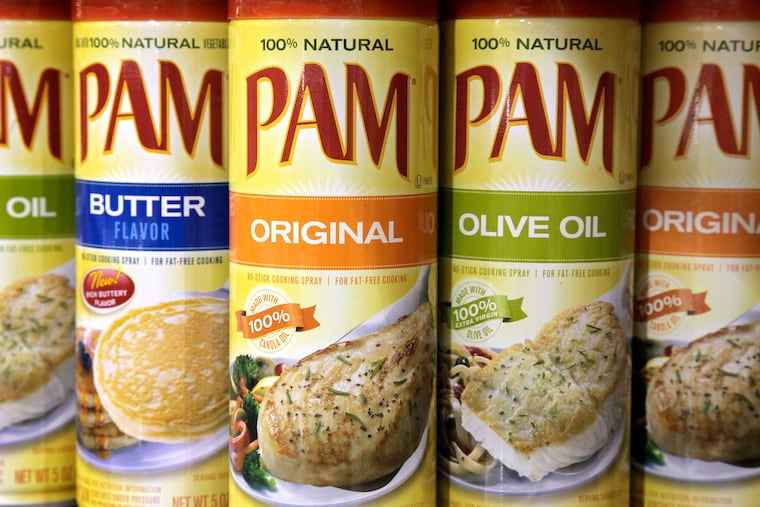A Pa. woman was awarded $7.1 million in lawsuit over exploding can of cooking spray
An incident in 2017 left a cook burned. It’s one of several cases against a Chicago company for an explosive cooking spray can.

Tammy Reese was working in the kitchen of a social club in Shippensburg in 2017 when a can of cooking spray exploded, catching fire and burning her hands, forearms, and face.
On Monday, Reese was awarded $7.1 million for the incident by a jury in Cook County Superior Court in Chicago.
“Nothing can begin to describe the excruciating pain and fear I felt that day,” said Reese in a statement.
Reese is one of dozens of people who have allegedly been injured in explosions of cooking spray cans produced by Conagra Brands Inc., a food company headquartered in Chicago, according to law firms representing the cases.
“When I learned that countless other people had experienced what I went through and that no recall was ever made, I felt angry,” said Reese. “I hope that they can get justice for the pain Conagra caused them to live with for the rest of our lives.”
“It’s unbelievable when you see it. It’s just a huge fireball … that just engulfs somebody and burns them immediately,” said Pete Flowers of Meyers & Flowers, who represented Reese.
There have been at least 56 cases representing 61 people filed against the company, according to law firms representing plaintiffs. Reese’s case is the first to receive a verdict. The $7.1 million award to Reese includes $4 million for punitive damages and $3.1 million in compensatory damages.
Conagra manufactures Pam and other cooking sprays. It is also the parent company of popular food brands including Slim Jim, Hunt’s tomato products, and Orville Redenbacher’s popcorn.
In a statement from Conagra, the company said that it disagrees with the jury’s verdict.
“Safety of our products and our consumers is always a top priority of Conagra. We continue to stand by our cooking spray products, which are safe and effective when used correctly, as instructed. We are evaluating our legal options, including appeal,” read the statement shared by a Conagra representative.
The spray cans in the suits were introduced in 2011 and contain a mechanism at the bottom of the can to ventilate flammable contents in a controlled way, according to plaintiff lawyers.
Conagra has not issued a national recall on those cans, but is said to have discontinued making them as of January 2019, according to the law firms representing those allegedly injured. Flowers says that while the cans are no longer made, some of them could still be on store shelves or in homes.
Flowers advises consumers to look at the bottom of cooking spray cans to check if it is the model involved in the explosions. If the bottom has four ventilation slits, he advises getting rid of it.